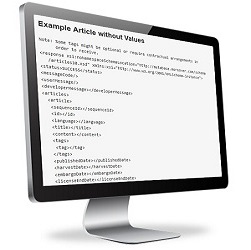What is data mining?
The business landscape is more and more data-driven every day, with big data growing at a mind-boggling, exponential rate. The need for organisations to sift through all this data to gather the most relevant and useful bits – and the hidden gems – is critical to realising success and staying competitive.
Data mining definition: Data mining is a data analysis method; it’s the process of combing through and analysing large amounts of raw data to detect meaningful relationships, patterns, irregularities and trends. By engaging in data mining techniques, organisations can extract actionable insights and predict outcomes. Armed with this information, they can use it to increase their earnings, reduce costs, build better customer relationships, develop more effective marketing strategies, decrease risk and more. Ultimately, data mining tools helps drive better all-around decision-making.
The method relies on valid data collection, data warehousing and computer processing; it draws on a wide range of data mining techniques and technologies, including statistics, machine learning and artificial intelligence.
Data warehousing is key to data mining. A data warehouse aggregates and electronically stores large amounts of information – often from multiple systems and sources – in one central database or program for evaluation and interpretation. Unlike databases that focus on transactions, data warehouses aim to provide a long-term view of data over time so that organisations can use that data strategically. Once all the information is merged and converted in the data warehouse, data scientists can start working with the data.
Why is data mining important?

These days, harnessing the benefits of huge amounts of data – both for now and for future use – is essential for organisations’ research and business development. When done correctly, data mining can be an invaluable resource that businesses across many industries can use to:
- outpace their competitors
- develop a creative, innovative organisational culture
- more quickly share information and knowledge across the enterprise
- increase collaboration between departments and business units
- drive employee engagement, satisfaction and retention
- accelerate decision-making and project execution
- control risks
- improve operational efficiency
For example, data mining tools enables you to collect a significant amount of enhanced business intelligence on your customers. You can use this information – both in your organisation’s best interests and in the best interests of your customers – to personalize and tailor your interactions with your customers and to strengthen their engagement with your brand and your business.
Nexis® DaaS
These days, across industries and businesses of all sizes, organisations are reliant on data not only for success, but for survival. But most still aren’t making the most of the data available to them. Reap the benefits of more effective data mining techniques and data analysis by implementing Nexis® Data as a Service (DaaS) from LexisNexis® into your business.
Nexis DaaS is a service that enables you to connect to our world-class, source-rich database through an API to get the premium data you need – in a format that suits you – to fit with your own application. Nexis DaaS mines highly relevant content from:
- domestic and international news sources
- company and industry data
- legal information
- social commentary
- radio and TV broadcast transcripts
- magazines and trade publications
- intellectual property (IP) and patents data
- newswires and press releases
What’s more, the Nexis DaaS CORE advantage lets you get to the core of what your data means and how it can benefit your business. So, what is the CORE advantage?
- Comprehensive: For more than 40 years, LexisNexis has cultivated strong relationships with global news and data providers to support data aggregation spanning a range of sources and topics. Nexis® DaaS application programming interfaces (APIs) empower organisations with a curated content collection of normalised big data. These voluminous datasets link businesses to the information they need for qualitative and quantitative data analysis and, ultimately, insights that will drive business gain.
- Optimal: Nexis® DaaS delivers relevant, high-quality, normalised big data, enriched with metadata using an easy-to-integrate API.
- Robust: Big data’s exponential growth means it’s more challenging than ever before for organisations to uncover the information essential for driving business insights. Nexis® DaaS provides access to smarter data through its API, which leverages predictive analytics, builds quantitative financial models and fuels machine-learning applications.
- Experienced: LexisNexis has a long-proven track record as a content aggregator. Our global team of content experts is dedicated to building an unmatched collection of text-based data.
In fact, Nexis® DaaS draws from 80,000 sources and adds 4.5 million documents to its vast collection every day. Our data covers 80 million companies, encompasses 75 languages, spans more than 13,000 topics and extends across more than 100 countries.
With the highly relevant, reliable insights you uncover with Nexis® DaaS, you’ll be able to make the most of your data and confidently make strategically driven decisions.
Frequently Asked Questions
What is data mining?
Data mining definition: Data mining is a data analysis method; it’s the process of combing through and analysing large amounts of raw data to detect meaningful relationships, patterns, irregularities and trends. By engaging in data mining practices, organisations can extract actionable insights and predict outcomes. Read more
Why is data mining important?
These days, harnessing the benefits of huge amounts of data – both for now and for future use – is essential for organisations’ research and business development. When done correctly, data mining can be an invaluable resource that businesses across many industries can use to:
- outpace their competitors
- develop a creative, innovative organisational culture
- more quickly share information and knowledge across the enterprise
- increase collaboration between departments and business units
- drive employee engagement, satisfaction and retention
- accelerate decision-making and project execution
- control risks
- improve operational efficiency
Get in touch
E-Mail: information@lexisnexis.com
Telephone number: +31 (0)20 485 3456